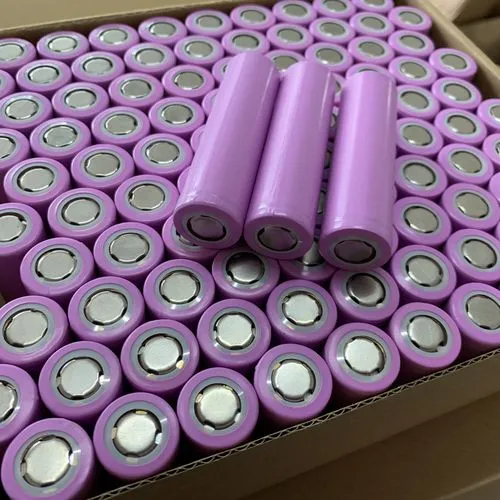As the demand for portable electronics and electric vehicles continues to grow, the need for reliable and high-performance batteries has become more important than ever. One of the most popular types of batteries for these applications is the 18650 battery, a cylindrical cell with a diameter of 18mm and a length of 65mm. In this article, we will explore the world of 18650 battery manufacturers, their production processes, and the key factors that affect the quality of these batteries.
Introduction to 18650 Battery Manufacturing
18650 batteries are widely used in a variety of applications, including laptops, flashlights, e-cigarettes, electric bikes, and electric cars. The manufacturing process for these batteries involves several stages, including electrode preparation, cell assembly, and quality testing.
The first stage in the production of 18650 batteries is the preparation of the electrodes. This involves coating a thin layer of active material onto a metal foil, which serves as the positive or negative electrode of the battery. The coated electrode is then dried and cut into strips, which are later wound into a cylinder shape.
In the second stage, the electrodes are assembled into a cell by winding them around a central core and placing them inside a cylindrical metal casing. A separator is added to prevent the positive and negative electrodes from touching, and an electrolyte is added to allow the flow of ions between the electrodes. Finally, the cell is sealed and tested for quality.
Top 18650 Battery Manufacturers
There are several 18650 battery manufacturer around the world, each with its own production processes and quality standards. Here are some of the top manufacturers in the market today:
Panasonic: Panasonic is one of the largest and most well-known battery manufacturers in the world. They produce high-quality 18650 batteries with a capacity range of 2,600mAh to 3,500mAh.
LG Chem: LG Chem is a South Korean company that produces a wide range of batteries, including 18650 batteries with a capacity range of 2,500mAh to 3,500mAh.
Samsung: Samsung is another South Korean company that produces high-quality 18650 batteries with a capacity range of 2,600mAh to 3,500mAh.
Sony: Sony is a Japanese company that produces high-performance 18650 batteries with a capacity range of 1,800mAh to 3,000mAh.
Tesla: Tesla is an American electric vehicle manufacturer that also produces its own 18650 batteries for use in its vehicles. Their batteries have a capacity range of 2,500mAh to 3,500mAh.
Apusenx: Apusenx is a Brand of Battery Wholesale Inc. in China, specializing in the production research, and development of lithium batteries, as well as intelligent manufacturing companies. Its main products include 18650 lithium batteries, 21700 lithium batteries, and custom lithium battery packs, products have CE, UL, IEC62133, ROHS, REACH, UN38.3, BIS, KC, and CQC certifications. committed to providing customers with various customized battery designs and professional energy storage battery solutions. service customers are spread across Europe, America, and Southeast Asia, providing high-quality products and services to global lithium battery industry brands, traders, manufacturers, and solution providers.
Factors that Affect 18650 Battery Quality
The quality of 18650 batteries can vary greatly depending on several factors, including the manufacturing process, the quality of the materials used, and the quality control procedures in place. Here are some of the key factors that affect the quality of these batteries:
Active material: The quality and purity of the active material used in the electrodes can have a significant impact on the performance and lifespan of the battery.
Electrode preparation: The process of coating the electrodes with the active material must be carefully controlled to ensure a consistent and uniform coating.
Cell assembly: The winding and assembly process must be precise to ensure that the electrodes are properly aligned and that the separator is in place to prevent short circuits.
Electrolyte: The quality and purity of the electrolyte can affect the performance and lifespan of the battery, and any impurities or contaminants can cause the battery to fail prematurely.
Quality control: Manufacturers must have rigorous quality control procedures in place to ensure that each battery meets its specifications and standards.
Conclusion
18650 batteries are an important component in a wide range of applications, and the quality of these batteries is critical to the performance and safety of these devices. As we have seen, there are several factors that can affect the quality of 18650 batteries, including the quality of the materials used, the manufacturing process, and the quality control procedures in place.
To ensure that you are getting a high-quality 18650 battery pack, it is important to choose a reputable manufacturer that has a proven track record of producing reliable and high-performance batteries. Some of the top manufacturers in the market today include Panasonic, LG Chem, Samsung, Sony, and Tesla, but there are many other manufacturers to choose from as well.
Whether you are using 18650 batteries in a laptop, flashlight, e-cigarette, electric bike, or electric car, it is important to use them responsibly and follow the manufacturer’s instructions for charging and storage. By taking care of your batteries and choosing a high-quality manufacturer, you can ensure that you get the most out of your devices and enjoy the reliable and long-lasting performance.


